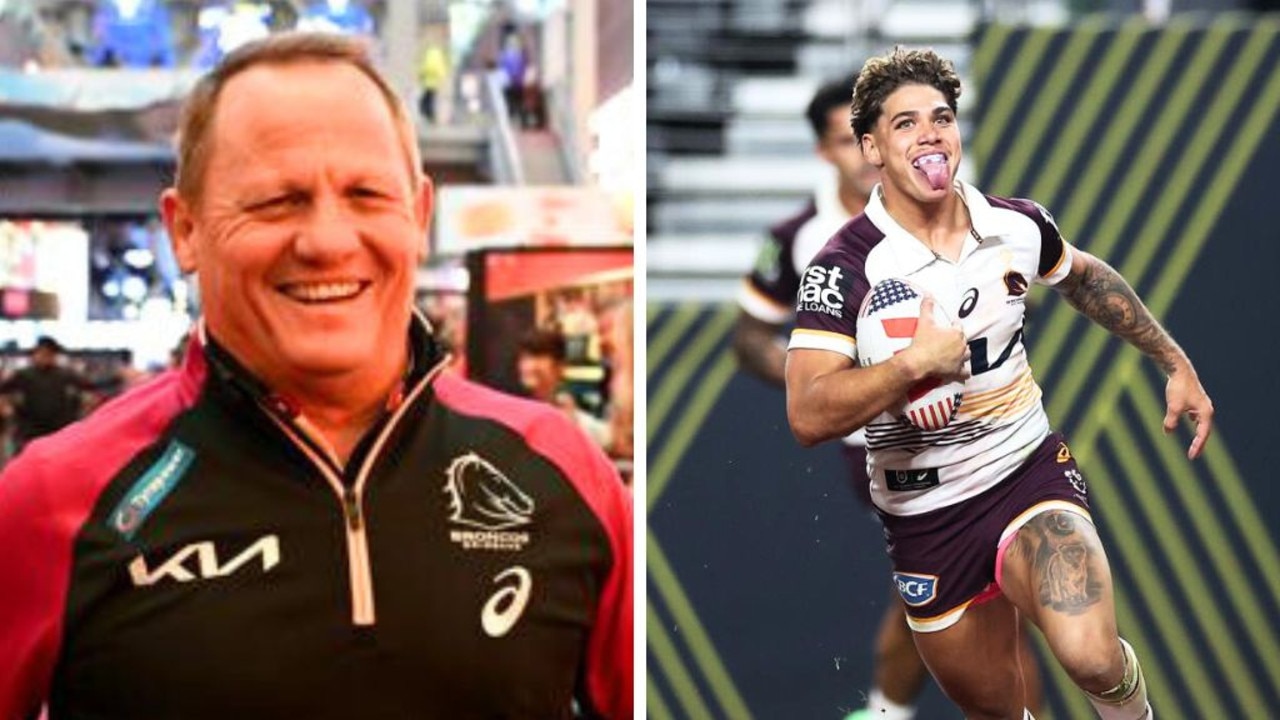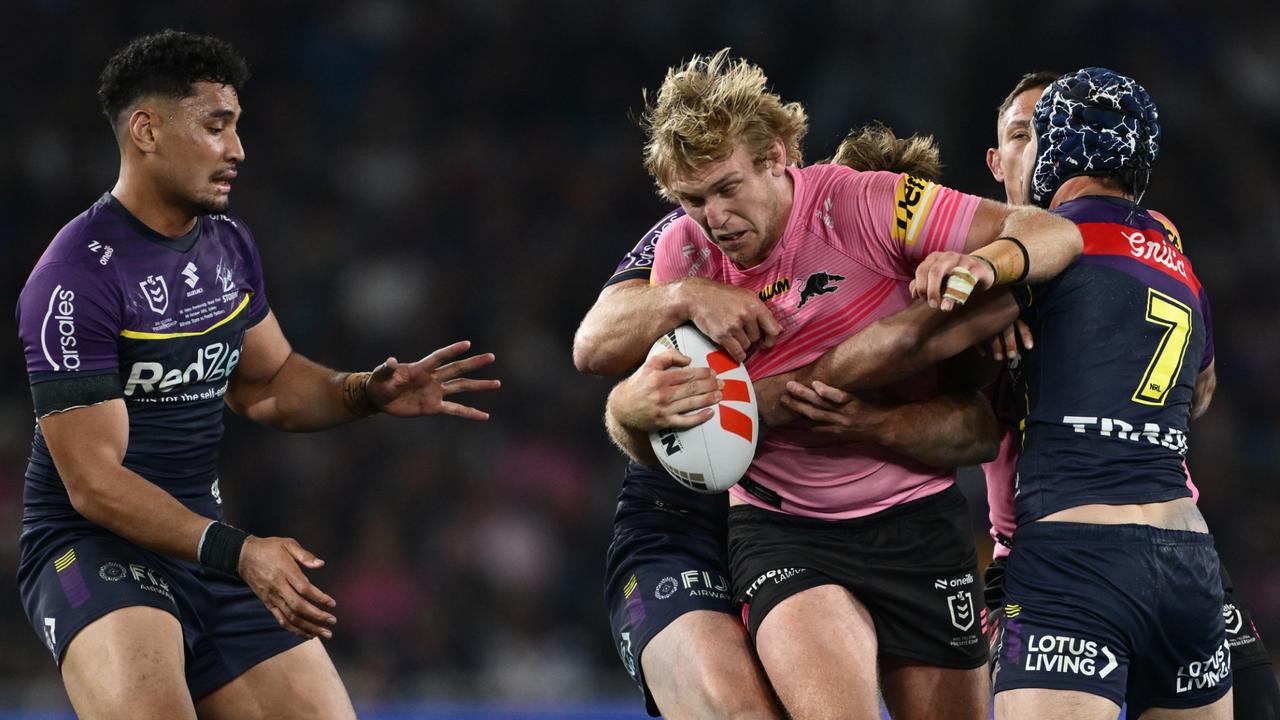Why Jarryd Hayne claims he should be acquitted
Fallen NRL star Jarryd Hayne has appeared in court as he fights to be freed from prison after being convicted of sexual assault.
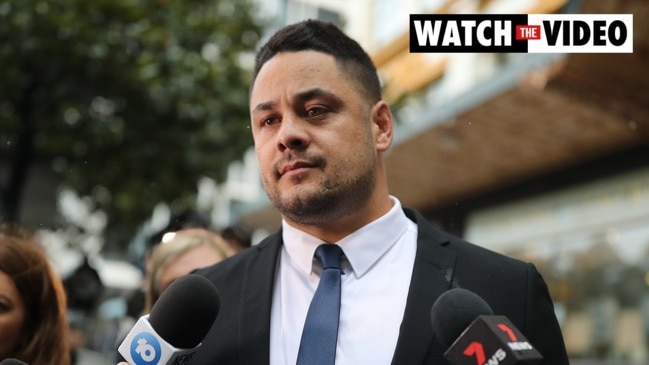
Jarryd Hayne has argued that his sexual assault conviction ought to be quashed because a jury mistakenly accepted his victim said “no, no, no” and because of a “flawed” direction given by the trial judge.
Wearing a black and white suit, the former NRL star on Monday appeared in court via videolink from Cooma Correctional Centre as he fights to either be acquitted or to face a retrial.
The 33-year-old was earlier this year jailed after a District Court jury found him guilty of two counts of sexual assault.
He was imprisoned for a maximum of five years and nine months - with a three-year, eight-month non-parole period - after a jury convicted him of the sexual assault of a then 26-year-old woman inside her Newcastle home in September 2018.
He immediately launched proceedings in the Court of Criminal Appeal and on Monday, Hayne appeared before Chief Justice Tom Bathurst and Justices Ian Harrison and Helen Wilson.
The woman also watched proceedings via videolink as the crown prosecution fought Hayne’s bid for his conviction to be quashed.
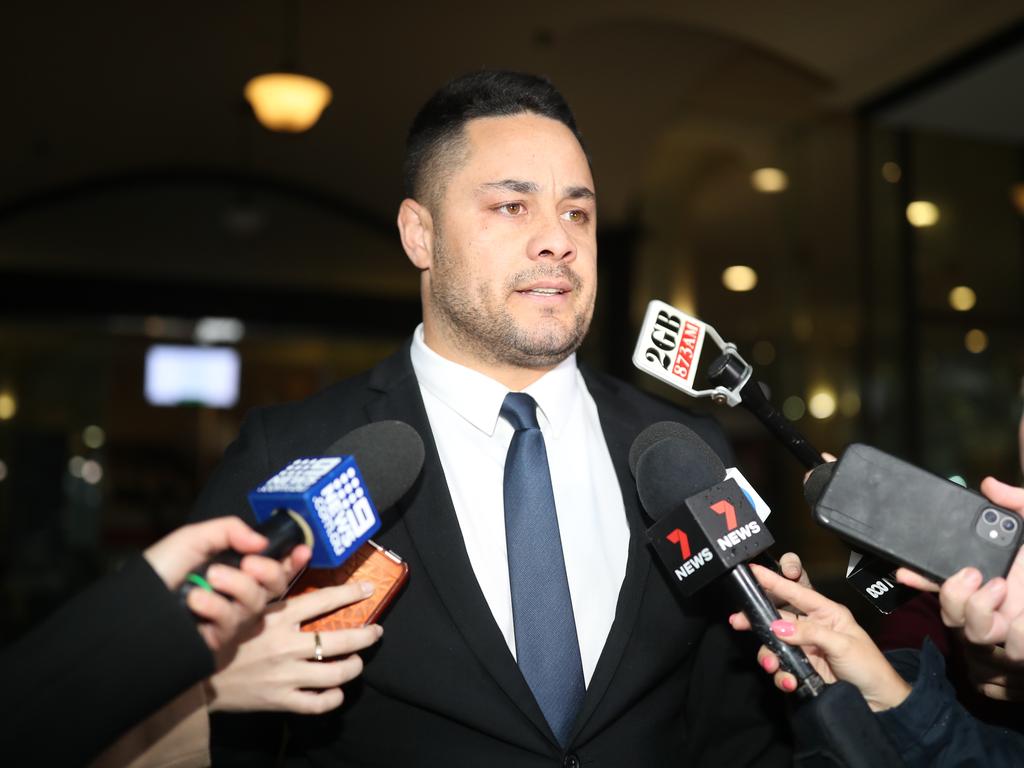
His first trial in Newcastle last year ended in a hung jury but he was found guilty following a second trial in Sydney’s Downing Centre District Court earlier this year.
Hayne pleaded not guilty at trial and has consistently professed he engaged in consensual sexual acts with the woman, that her injuries were accidental and that he had apologised.
However, the jury accepted the woman’s version of events that she said “no” and “no Jarryd” and that she did not consent to the former Dally M winner performing oral and digital sex on her in the bedroom of her Fletcher home on NRL grand final night on September 30, 2018.
Defence barrister Tim Game said that Hayne was appealing on several grounds including that there was evidence which contradicted the woman’s claim that she repeatedly said “no”.

She had claimed that Hayne had pulled off her pants before assaulting her, while on his version of events she helped pull down her own jeans.
Mr Game pointed to texts sent between the woman - who cannot be named - and a friend shortly after the assault.
In them, she referred to him “getting his hand down there and taking my pants off” and “I was sort of scared and unsure if I wanted to”.
“We say putting his hands down there is quite different to the account she gave that in a single movement he ripped her pants off,” Mr Game said.
“She also says ‘I wanted to but I didn’t’. It’s difficult to see how that fits with ‘no, no, no’.”
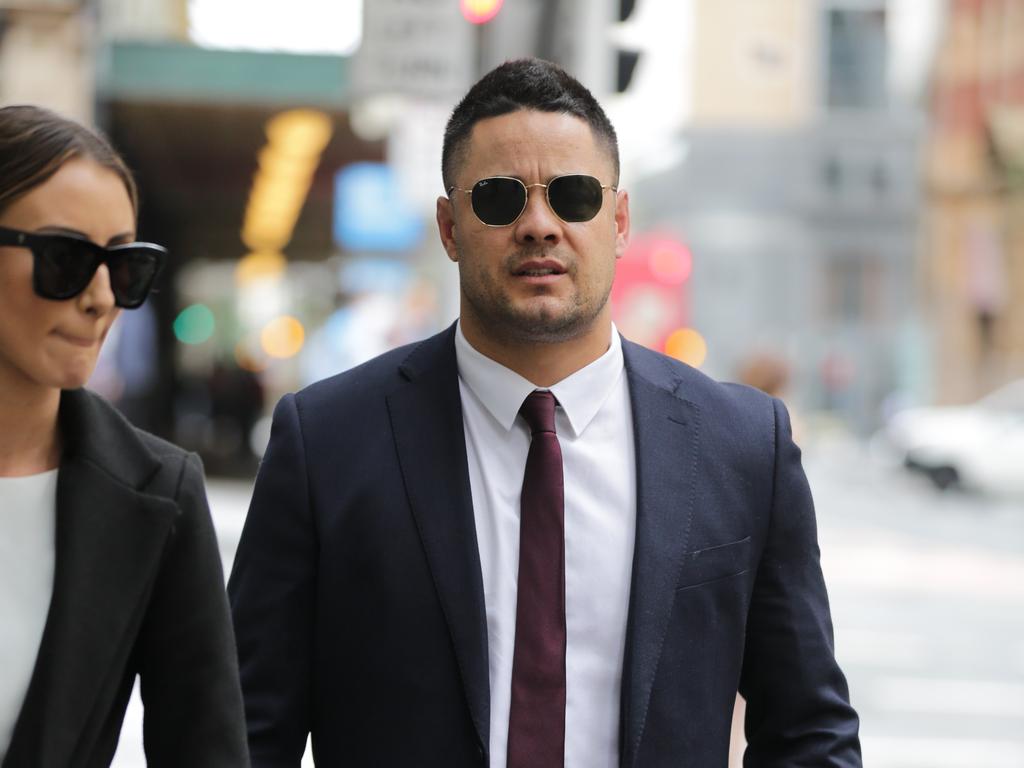
She was left with two lacerations on her genitalia.
Hayne was in Newcastle for a two-day buck’s party for a former teammate and had stopped off at the woman’s house on the way back to Sydney to attend a sponsors’ function.
The two had exchanged sexually-explicit messages via social media prior to Hayne coming to her house.
However, she said that she refused to any sexual acts when she noticed that he had a taxi waiting outside to take him back to Sydney.
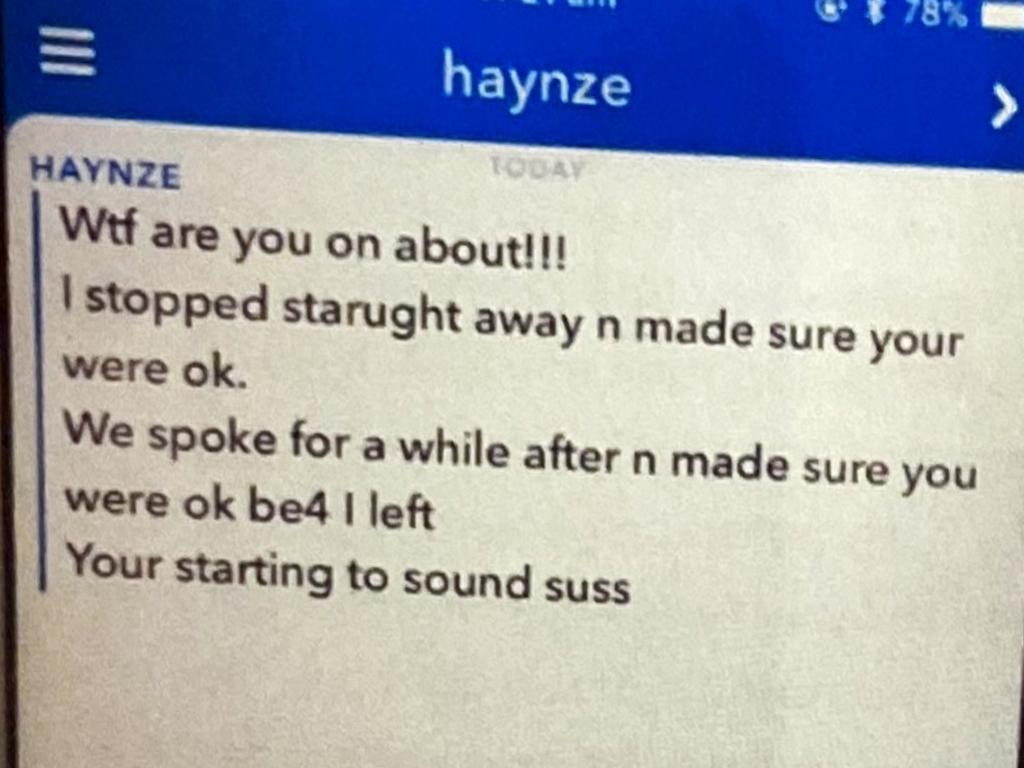
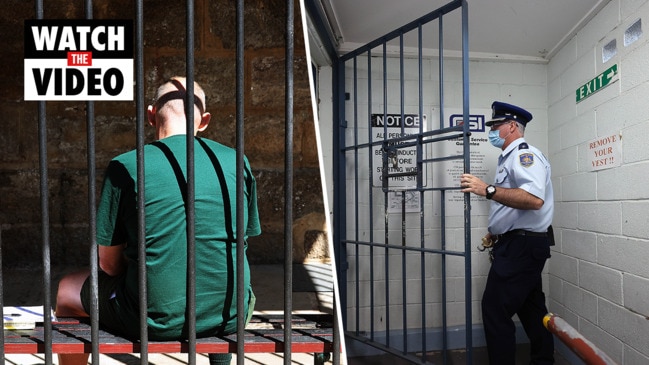
Mr Game also referenced Snapchat messages in which the woman said: “I don’t remember what I said but you knew I definitely wasn’t OK from the damage that night and you just left me that way.”
“It was pretty messed up and you should have just stopped when I said so.”
The messages, which were tendered to the court, revealed that Hayne then became angry.
“Wtf are you on about!!!,” he said, maintaining they had engaged in consensual sex.
“I stopped straight away n made sure your were OK.”
Mr Game said his client’s reply suggested that he believed she was consenting.
Crown prosecutor Brett Hatfield however pointed to texts the woman sent to Hayne while he was driving back to Sydney.
“I know I’ve talked about sex and stuff so much but I didn’t want to do that after knowing the taxi was waiting for you,” the woman said.
Mr Hatfield argued: “The first complaint very shortly after the things have occurred, she has referred to ‘I didn’t want to do that’, which is a reference to what had happened.”
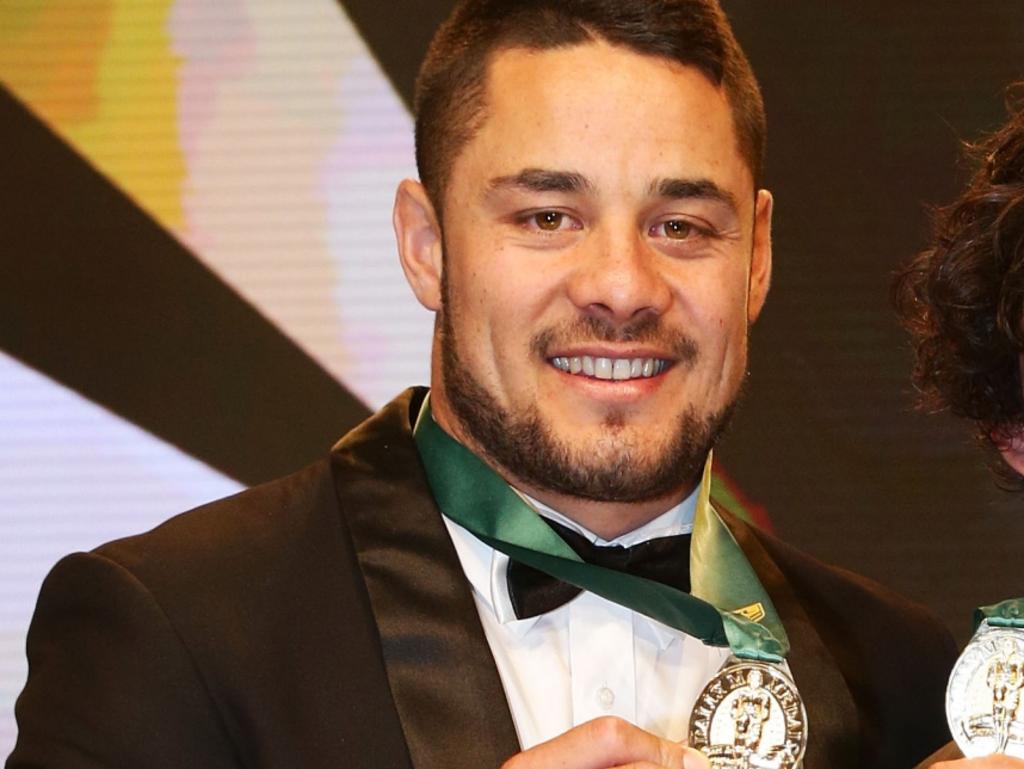
Mr Game also argued that trial Judge Helen Syme made mistakes in the way she directed the jury on the issue of consent.
Judge Syme used the word “might” when directing the jury on arguments about whether Hayne had an honest belief on reasonable grounds that she was consenting.
Mr Game described the direction as being flawed in “almost every possible way”.
Mr Hatfield argued while Judge Syme’s language could have been “tighter”, he did not believe it led to the jury being given improper directions about what they had to weigh up.
“I don’t concede it’s an error. I concede it could have been worded better. Perfection is not required,” Mr Hatfield said.
The three-judge panel reserved their decision for a later date.
If his appeal fails, Hayne will not be eligible for parole until January 2025.
It could also have an impact on his footballing legacy.
The NRL has said it will consider stripping him of his two Dally M medals if the appeal fails.



